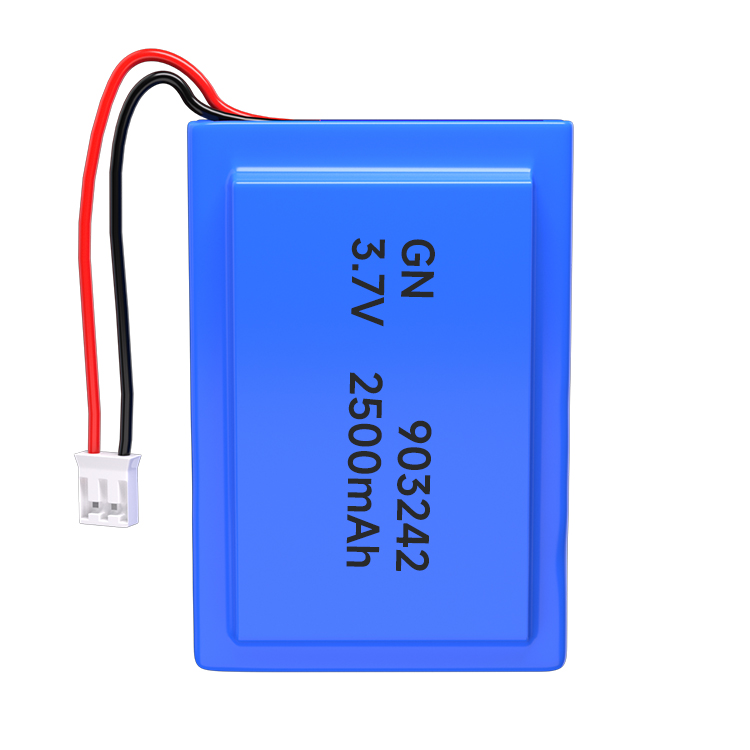
Most people in the battery industry know that the stability of the charging
and discharging state of lithium batteries is greatly influenced by temperature
changes. When lithium batteries are charged and discharged in high and low
temperature environments, their capacity retention rate decreases. Among all
environmental factors, temperature has the greatest impact on the charging and
discharging performance of lithium batteries, and the electrochemical reaction
at the electrode/electrolyte interface is related to environmental temperature,
The electrode/electrolyte interface is considered the heart of the battery. If
the temperature drops, the reaction rate of the electrode also decreases.
Assuming that the battery voltage remains constant and the discharge current
decreases, the power output of the lithium battery will also decrease. If the
temperature rises, the opposite is true, that is, the output power of the
battery will increase, and the temperature will also affect the transmission
speed of the electrolyte. If the temperature rises, it will accelerate, the
transmission temperature will decrease, and the transmission will slow down. The
charging and discharging performance of the battery will also be affected. But
the temperature is too high, exceeding 45 ℃. Lithium ion batteries are
increasingly being used in people's production and life, which makes their
temperature environment a key concern. Relatively speaking, lithium batteries
are more prone to safety issues in high temperature environments. Therefore, it
is necessary to test the high-temperature performance of lithium batteries and
compare them with their room temperature test data.
The change in temperature directly affects the discharge performance and
capacity of lithium batteries. As the temperature decreases, the internal
resistance of the battery increases, the electrochemical reaction rate slows
down, the polarization internal resistance rapidly increases, the discharge
capacity and discharge platform of the battery decrease, affecting the power and
energy output of the battery. For lithium-ion batteries, the discharge capacity
drops sharply at low temperatures, but at high temperatures, the discharge
capacity is not lower than at room temperature and sometimes slightly higher
than at room temperature. This is mainly due to the accelerated migration rate
of lithium ions at high temperatures. Unlike nickel electrodes and hydrogen
storage electrodes, lithium electrodes do not decompose or form hydrogen gas at
high temperatures, causing a decrease in capacity. When the battery module is
discharged at low temperature, as the discharge proceeds, heat is generated due
to resistance and other reasons, causing the battery temperature to rise,
resulting in an increase in voltage. As the discharge proceeds, the voltage
gradually decreases.
At present, there is no clear theoretical support for the internal
resistance, discharge platform, lifespan, capacity, and other necessary
connections of the lithium battery industry at various temperature performance
levels. Relevant calculation formulas and mathematical models are still in the
exploratory stage. In practical experiments, it has been proven that lithium
batteries are not sensitive to the temperature range of 0-40 ℃. If the
temperature changes below 0 ℃ or above 40 ℃ during charging and discharging, the
cycle life and capacity of lithium batteries will be lower than normal values.
The larger the temperature range, the less capacity and life there will be. For
example, in winter, especially in colder regions in the north, the battery life
of mobile phones is much shorter than in summer. This is related to temperature
changes, not the reason why mobile phone batteries are not durable.
The low-temperature performance of lithium batteries made of different
materials also varies. For example, lithium iron phosphate has the worst
low-temperature performance. The lithium iron phosphate battery developed byour
Battery has a capacity of 89% of its maximum capacity at -10 ℃, which should be
relatively high in the industry; At 55 ℃, the capacity can reach 95%, and the
attenuation at relatively low temperatures is relatively small. However, the
low-temperature performance of lithium manganese oxide, lithium cobalt oxide,
and ternary products is better, but also limited; And the sacrifice is
high-temperature performance. Nowadays, the industry advocates that lithium iron
phosphate has high safety performance and good high-temperature performance, but
in fact, the battery activity is not as high as the above three, which is
relatively safer. The overall performance is still not as good as manganese
lithium or ternary. In winter, especially in colder regions in the north, the
battery life of mobile phones is much shorter than in summer.
Lithium ion batteries are increasingly widely used in people's production
and life, which makes their temperature environment a key concern. Relatively
speaking, lithium batteries are more prone to safety issues in high-temperature
environments. Therefore, it is necessary to test the high-temperature
performance of lithium batteries and compare them with their room temperature
test data.
Read recommendations:
702535 600mAh 3.7V
Is lead-acid batteries charged on demand or after use.18650 battery 3500mah lithium
401030 battery.Lithium ion batteries
household energy storage lithium battery wholesale
button battery 2032












































 360° FACTORY VR TOUR
360° FACTORY VR TOUR
 Whatsapp
Whatsapp
 Tel
Tel Email
Email TOP
TOP